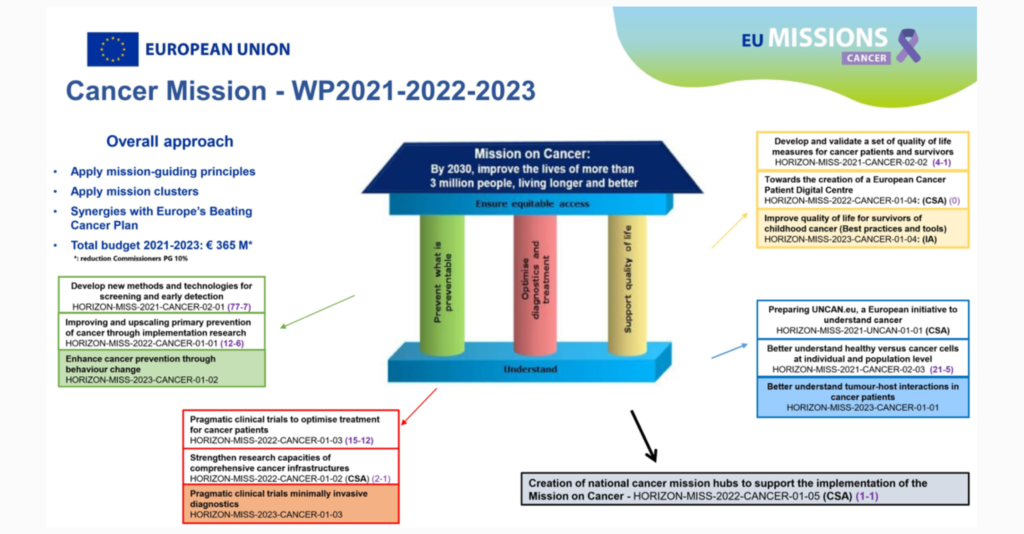Obesity has become a global epidemic, with severe implications for public health. In Europe, childhood obesity is a complex issue with significant health and societal consequences, particularly due to its strong link with cancer risk in adulthood.
The PREVENT project represents a crucial step in addressing childhood obesity and its link to cancer, aligning with the EU’s broader mission to combat cancer through research, prevention, and improved quality of life.
In Europe, one in three children aged 6 to 9 is either overweight or obese, placing them at significant risk of health complications. Moreover, in 2020 alone, 2.7 million people in the European Union (EU) were diagnosed with cancer, resulting in 1.3 million lives lost, including over 2,000 young individuals. Without decisive action, cancer cases are projected to rise by 24% by 2035, potentially becoming the leading cause of death in the EU region. The escalating rates of cancer diagnoses and related fatalities in the European Union underscore the urgent need for action. Thus, addressing childhood obesity is essential, and the European Commission’s Knowledge Centre on Cancer has issued evidence-based recommendations for cancer prevention. Furthermore, in response to the alarming cancer statistics within the European Union, the European Commission developed the EU Mission: Cancer, which plays a pivotal role in the mission to tackle this pressing health challenge. The European Union’s Cancer Mission forms an integral part of the Horizon Europe research and innovation programme spanning 2021 to 2027.
The core of the European Union’s Cancer Mission is to enhance the well-being of over 3 million individuals by 2030. Focusing on prevention, cure, and improving the quality of life for those affected by cancer. It emphasises gaining a deeper understanding of cancer, preventing avoidable cases, optimising diagnostics and treatment, and ensuring equitable access to advancements for all.
Mission on Cancer is built on 3 main pillars: i) prevent what is preventable ii) optimise diagnostic and treatments and iii)support quality of life. See the image below.

The PREVENT project aligns seamlessly with the EU Cancer Mission, aiming to prevent cancer by expanding primary interventions for weight control during childhood and adolescence. As a pioneering initiative, PREVENT falls under the umbrella of the EU Mission: Cancer.
The project aims to prevent cancer by enhancing primary interventions for childhood and adolescent weight control, presenting a comprehensive core strategy. To do so, PREVENT establishes multidisciplinary Communities of Practice (CoPs) to monitor, advise, and refine research implementation. Additionally, three Living Labs (LL) with 6,000 members actively engage stakeholders in co-designing strategies to combat childhood obesity and its link to cancer. PREVENT uses a versatile approach, integrating behaviour change models such as the Trans-Theoretical Model (TTM), motivational interviewing, psychological counselling, and digital tools.
Yet, the PREVENT initiative is merely one of several actively committed to advancing cancer prevention endeavours. Notably, within the EU Mission’s ‘Prevention and Early Detection Cluster,’ various innovative projects aim to provide tangible benefits to Europe’s population. Examples include ONCODIR, PIECES, CO-CAPTAIN, 4P-CAN, CPW and PREVENT itself.
The Mission Cancer clusters foster collaboration among projects to build a comprehensive portfolio aligned with the mission’s core goals. These clusters revolve around understanding cancer, prevention (including screening), improved diagnosis and treatment, and enhancing the quality of life for those affected by cancer. Collaboration within these clusters drives progress toward addressing this significant health challenge.
An EU Commitment towards understanding Cancer: UNICAN.eu platform.
At the heart of these developments is the UNCAN.eu platform, a forward-thinking initiative focused on gathering, sharing, and deeply analysing research, patient health data, and other pertinent information. This collective effort aims to shed new light on poorly understood cancers. The primary areas of focus include establishing a connected platform of national cancer data hubs, leveraging existing research infrastructures, developing innovative models and digital tools for advancing cancer research, and seamlessly integrating with other essential data platforms such as the European Cancer Patient Digital Centre and a comprehensive cancer infrastructure network.
Support quality of Live Pillar: The European Cancer Patient Digital Centre
The European Cancer Patient Digital Centre is a network uniting patient-controlled health data infrastructures across nations. It enables the voluntary exchange of patients’ and survivors’ health data in a standardised manner, fostering support and information accessibility for cancer patients, survivors, and their families. This involves connecting national health data infrastructures within the EU network, catering to country-specific needs while maintaining ties to cancer registries. Additionally, it establishes a secure cross-border environment for patients to access and share electronic health data while ensuring privacy. The centre also provides tools for collecting patient-reported data and supports participation in crucial research, including trials.
EU Missions serve as instrumental drivers in propelling Europe’s transformation into a more sustainable, healthier, and inclusive continent. These strategic initiatives carefully address pressing challenges and actively promote innovation and collaboration, contributing to the realisation of positive, enduring impacts on the overall well-being and resilience of the continent.




